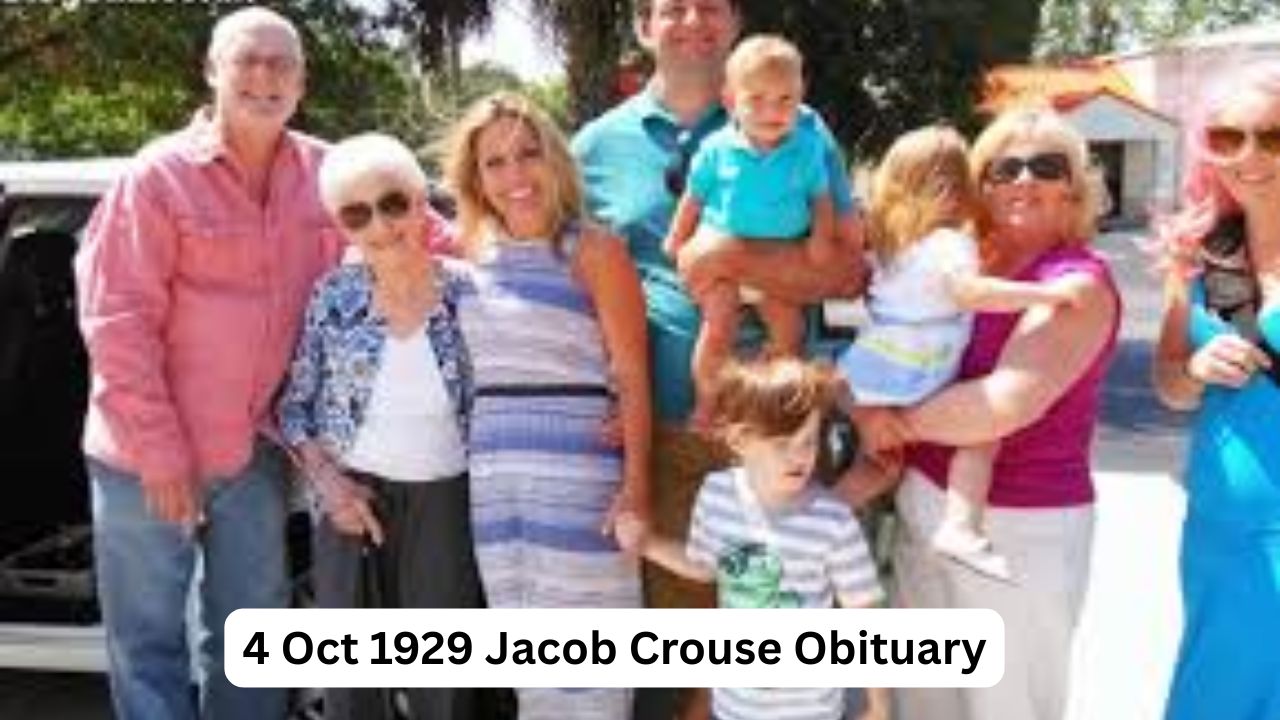4 Oct 1929 Jacob Crouse Obituary: A Legacy Preserved Through Time
Introduction
The is more than a death notice from the early 20th century—it is a preserved memory of a life once lived, a family’s history, and a community’s respect for one of its members. Obituaries from this period give us insight into personal lives, local traditions, and the cultural context of their times. By exploring Jacob Crouse’s obituary, we see how one individual’s story contributes to a broader understanding of history and heritage.
Who Was Jacob Crouse?
When reflecting on the , curiosity often arises about the man behind the name. . He lived through significant societal changes, spanning the late 1800s into the early 1900s—a period shaped by industrial growth, evolving small-town life, and shifting traditions.
Why the 4 Oct 1929 Jacob Crouse Obituary Matters
-
Historical Significance: It connects us to the lives of everyday people in the 1920s.
-
Family Research: For descendants, it provides essential genealogical information.
-
Community Record: It reflects the culture and traditions of small-town America.
The Historical Context of October 1929
The was published in a pivotal year in U.S. history. October 1929 is remembered for the stock market crash that triggered the Great Depression. While Jacob Crouse’s passing occurred before that devastating event, his obituary was printed at a time when uncertainty loomed over American families.
Genealogical Value of the 4 Oct 1929 Jacob Crouse Obituary
-
Surviving children and relatives.
-
Affiliations with churches or local organizations.
-
Funeral arrangements and burial sites.
-
Biographical notes on work, service, or community involvement.
These records help descendants trace lineage, confirm family ties, and uncover forgotten stories. Jacob Crouse’s obituary, therefore, acts as a bridge between past and present generations.
Obituaries as Preservers of Memory
The 4 Oct 1929 Jacob Crouse obituary highlights how obituaries serve a role far beyond public announcements. They are timeless markers of identity. Through them, we remember lives that might otherwise fade into obscurity.
For Jacob Crouse, his obituary ensured that his story did not end with his passing. Instead, it became a lasting document—acknowledging his role as a family member, neighbor, and individual who contributed to the world around him.
Lessons from the 4 Oct 1929 Jacob Crouse Obituary
-
Every Life Has Historical Weight – Even lives that were modest in scale become important through memory.
-
Context Shapes Legacy – The timing of his obituary in October 1929 places his story against a backdrop of great change.
-
Records Connect Generations – Without such notices, families and researchers would lose vital links to their ancestry.
Modern Relevance of Historical Obituaries
Today, archives and digital genealogy tools make it possible to revisit the Families searching for their heritage can find deep meaning in such records, while historians use them to better understand cultural and societal patterns.
Conclusion
The is more than a historical clipping—it is a legacy. It symbolizes remembrance, provides family connections, and teaches us the value of recording each life story. Through this obituary, Jacob Crouse’s name endures, reminding us that honoring the past is essential for understanding the present.







